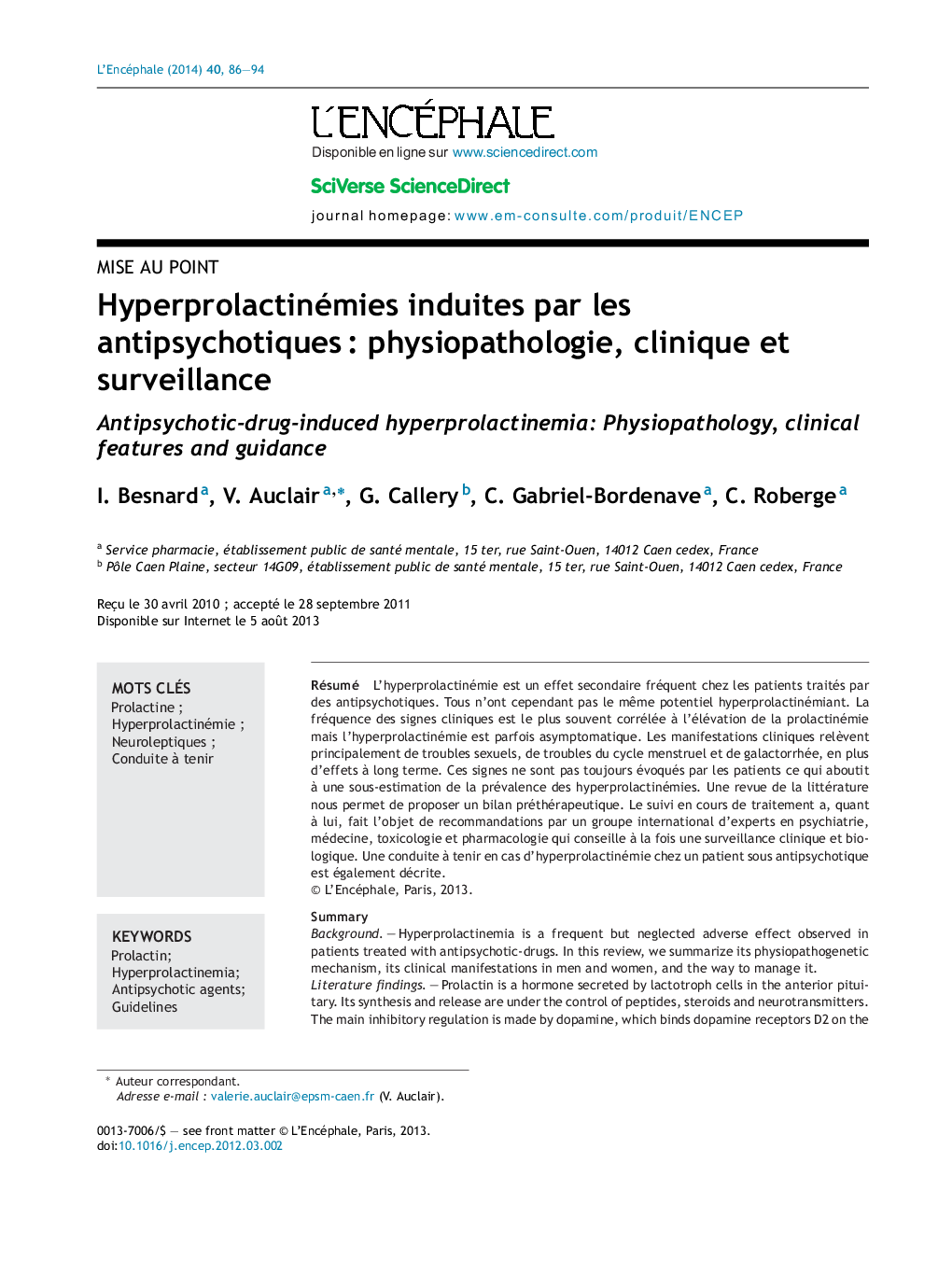| Article ID | Journal | Published Year | Pages | File Type |
|---|---|---|---|---|
| 4181733 | L'Encéphale | 2014 | 9 Pages |
Abstract
Our review promotes a check-up before beginning a treatment with antipsychotic agents. First, a baseline prolactin level should be measured. It should also include the research on previous treatment with antipsychotic-drugs and the assessment of adverse effects suggestive of hyperprolactinemia. Questioning should finally look for any contra-indication to antipsychotics. Monitoring during antipsychotic treatment has been studied by a group of international experts in psychiatry, medicine, toxicology and pharmacy who made a critical review of clinical guidance on hyperprolactinemia. Experts notify that it is important to check whether patients have any sexual dysfunction, such as loss of libido or menstrual irregularity, and galactorrhoea. Prolactin level should also be controlled after three months of stable dose treatment, or if any clinical feature of hyperprolactinemia appears. If a patient prescribed antipsychotic-drugs has a confirmed prolactin level above the normal range, it is necessary to exclude other causes of hyperprolactinemia. If antipsychotics are really involved, the management should be adapted with the prolactin level and the patient him/herself. To summarize, clinicians can decrease the dose of the antipsychotic or switch to a prolactin-sparing drug. Oral contraceptives can be added whether to prevent pregnancy or to prevent bone loss and osteoporosis. Finally, experts recommend reserving dopamine agonists to treat antipsychotic-induced hyperprolactinemia in very exceptional circumstances as it can worsen the mental illness.
Keywords
Related Topics
Health Sciences
Medicine and Dentistry
Psychiatry and Mental Health
Authors
I. Besnard, V. Auclair, G. Callery, C. Gabriel-Bordenave, C. Roberge,
